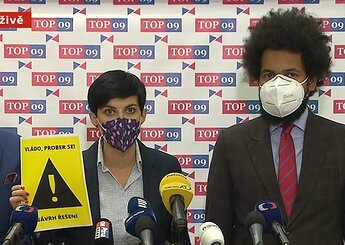Interview summary in ENG ![]()
S. (22.2.2021) - see the original transcript here.
-
Perspective of a high-school student, living in a smaller town, to be graduating this year.
-
Perceives the covid crisis as deeply impacting on her personal life – restrictions of personal freedoms, abilities to socialise or to continue with her studies.
-feelings of alienation, insecurity and loneliness.
-all meaningful social interactions moved to social media (Instagram, tiktok, clubhouse) – this is having a significant impact on her mental health and feelings of isolation.
-missed the opportunity to go on an Erasmus exchange program, into which she invested a lot of energy and effort and which she saw as “an opportunity to start a new life.” -
Most significant change has been the switch to online learning – her and majority of her classmates have not been able to adapt to it and struggle to concentrate at home. They feel like they have been ‘robbed’ of their right to education by the government’s inability to implement appropriate measures and supporting infrastructures. The stress is felt particularly by the final year students who feel unprepared to sit the final exams (maturita) and who keep receiving mixed messaging from the ministry of education, regarding the form of these final exams (whether it’s going to be modified or perhaps even cancelled).
-Emergence of various self-help and mutual aid groups, created by students for students where they share material and exam questions on social media (Instagram, clubhouse etc.) -
The household dynamics changed dramatically. As everyone in the family is working or studying form home, the mother is increasingly pressured to fulfil the majority of the housework.
-clear division of gendered roles in the household.
-“Suddenly a lot of people have to fulfil several roles all at once, which they previously did not have to do. Parents became teachers, women even more pressured to keep up with housework. It really affected the household dynamics.” -
Labour – our working lives will never be the same, everything will be digitalised and moved online – these are the impressions she gets from her father, who has been on home office since the beginning of the pandemic.
-the division between working and personal/home spheres is being slowly diminished. Everything takes place in the space of home. -
Strong sense of being alienated from politics.
-Politics as something that does not concern her day-to-day reality.
-“As I am a citizen of this country, I should be paying more attention to politics. But it does not really interest me […] I didn’t go to vote, even though I could have/ should have”
-She does not feel like she could choose from any of the current political parties.
-Identifies government as utterly failing in dealing with the crisis – the best solution would be a full lockdown and thinks that the government will not implement it because of the growing pressure from the people.
-Identifies gov’s erratic and miscalculated decisions as very much influenced by ‘what the people want’.
-easening of the restrictions in the summer and during Christmas period seen as the chief cause for the situation today (the state of emergency).
-again, implemented because that is what people wanted.
“Instead of us people getting together and thinking about the future, about long-term improvement, we pressured the government to ease the restrictions, in order to buy Christmas presents.” -
Media: the most comprehensible source of information for the majority of young people is the Instagram account @choco_afro of the “youngest and first black member of the chamber of deputies” and a member of TOP09, a liberal-conservative political party. Throughout the pandemic, he has been updating on the government restrictions in place in the form of simple yellow Instagram posts, earning himself up to 1,000,000 followers.

Ferri as Večerníček - an icon of the most popular television program for children in Czech.
Source: instagram/choco_afro
-The popularity of his Instagram account further highlighted the government’s inability to put together a comprehensive communication strategy which would ensure citizens’ awareness of what rules they should follow.
Representatives of the opposition party TOP09 (Pekarová Adamová and Ferri) holding a poster in the style of Ferri’s instagram posts that reads: “Government, wake up!”
Source: reflex.cz
